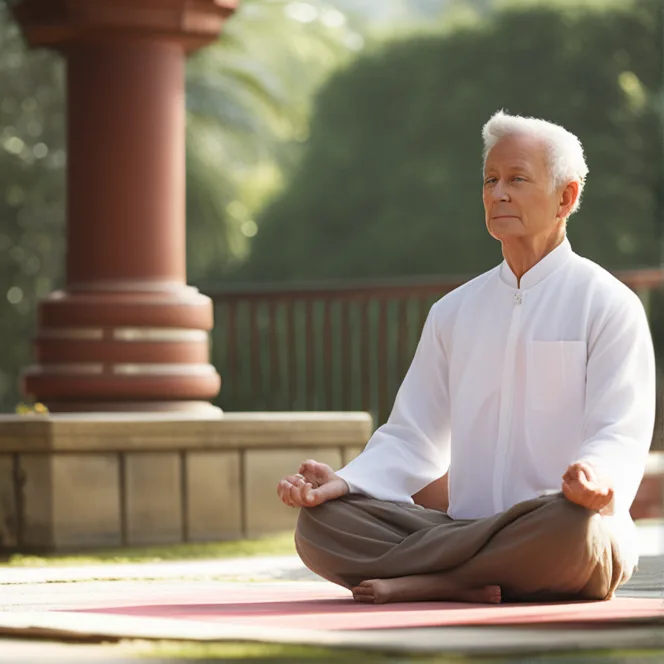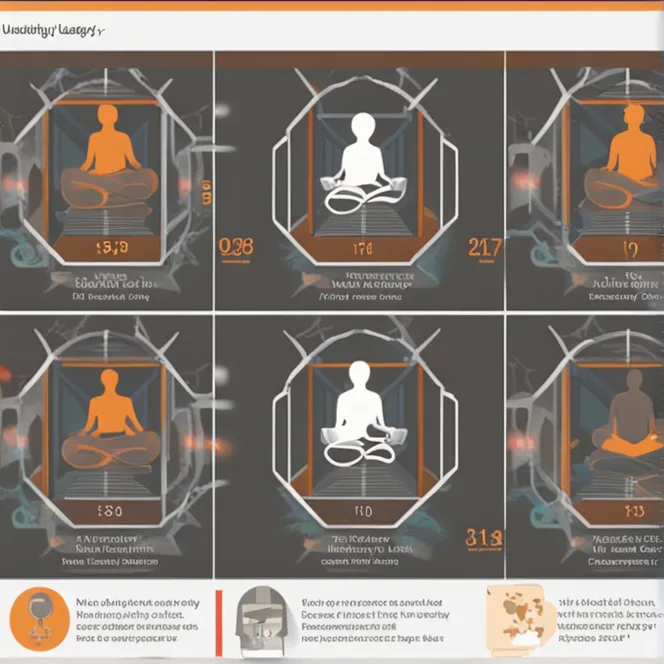
Unlocking Longevity: Meditation’s Role
Explore how meditation practices can influence longevity and enhance overall life expectancy in this insightful article.
article by Hina Kurosawa
The Essence of Meditation
Meditation has long been heralded for its restorative powers on the mind and body, but only recently have scientists begun to uncover its potential role in increasing life expectancy. Broadly defined, meditation is a practice that involves focused attention and deep breathing to achieve a mentally clear and emotionally calm state. It encompasses a variety of techniques, from mindfulness meditation, which involves paying attention to the present moment without judgment, to transcendental meditation, which uses a mantra or series of words to help focus the mind.

Scientific Insights on Meditation
Numerous studies have suggested that regular meditation can lead to a plethora of health benefits, including stress reduction, improved emotional health, and enhanced self-awareness. These elements are critical in managing chronic diseases and promoting longevity. Stress, for instance, is a well-known risk factor for many conditions that can shorten life expectancy, such as heart disease and stroke. By mitigating stress, meditation is theorized to contribute indirectly to a longer life.

The Mind-Body Connection
The practice of meditation strengthens the mind-body connection, providing benefits that go beyond mere relaxation. For example, meditation can lower blood pressure, improve immune function, and aid in the management of pain and inflammation. These are significant factors in preventing chronic illness, which can have a significant impact on longevity. Moreover, the enhanced mental clarity and focus achieved through meditation can lead to better lifestyle choices, further contributing to a healthier life.
Longevity and Telomeres
At the cellular level, meditation may directly affect longevity through its impact on telomeres – the protective caps at the end of our chromosomes. Telomeres tend to shorten as we age, but studies have shown that meditators may have longer telomeres, which could translate to a slower aging process. While more research is needed to fully understand this relationship, the implications of meditation on cellular aging are promising.

Integrating Meditation into Daily Life
Incorporating meditation into one's daily routine can be a simple yet effective way to promote longevity. Even short, daily sessions can yield measurable benefits. For those new to the practice, guided meditations or group sessions can provide support and structure to ensure consistency. Consistency, above all, is key to reaping the possible life-extending advantages of meditation.
Meditation's Preventative Potential
Meditative practices also serve as a preventative measure against cognitive decline. Through the cultivation of mental discipline and the reduction of stress-related hormones, meditation can help maintain cognitive function and protect against age-related diseases like Alzheimer's. Maintaining a healthy brain is integral to not just living longer, but also ensuring quality of life as we age.

While meditation is no fountain of youth, its potential impact on life expectancy is hard to ignore. Embracing meditation as a part of a holistic approach to health could very well be an essential step toward extending both lifespan and healthspan. As research continues to evolve, what remains clear is that the quiet power of meditation holds profound and far-reaching benefits for our overall well-being.
Published: 12/6/2023
Modified: 12/6/2023
More predictions
Come back here soon to learn more about yourself and your future


Meditation for Harmonic Balance
Explore the serene connection between meditation practices and achieving inner balance, enhancing your spiritual journey.


Mindfulness in Marketing: A Conscious Approac
In an era driven by consumerism and relentless advertising, businesses are increasingly embracing mindfulness as a way to connect with their audience authentically. Mindfulness in marketing represents a conscious shift away from aggressive sales tactics toward a more empathetic and human-centric approach. This article explores the growing trend of mindfulness in marketing, its principles, and the benefits it offers to both businesses and consumers.